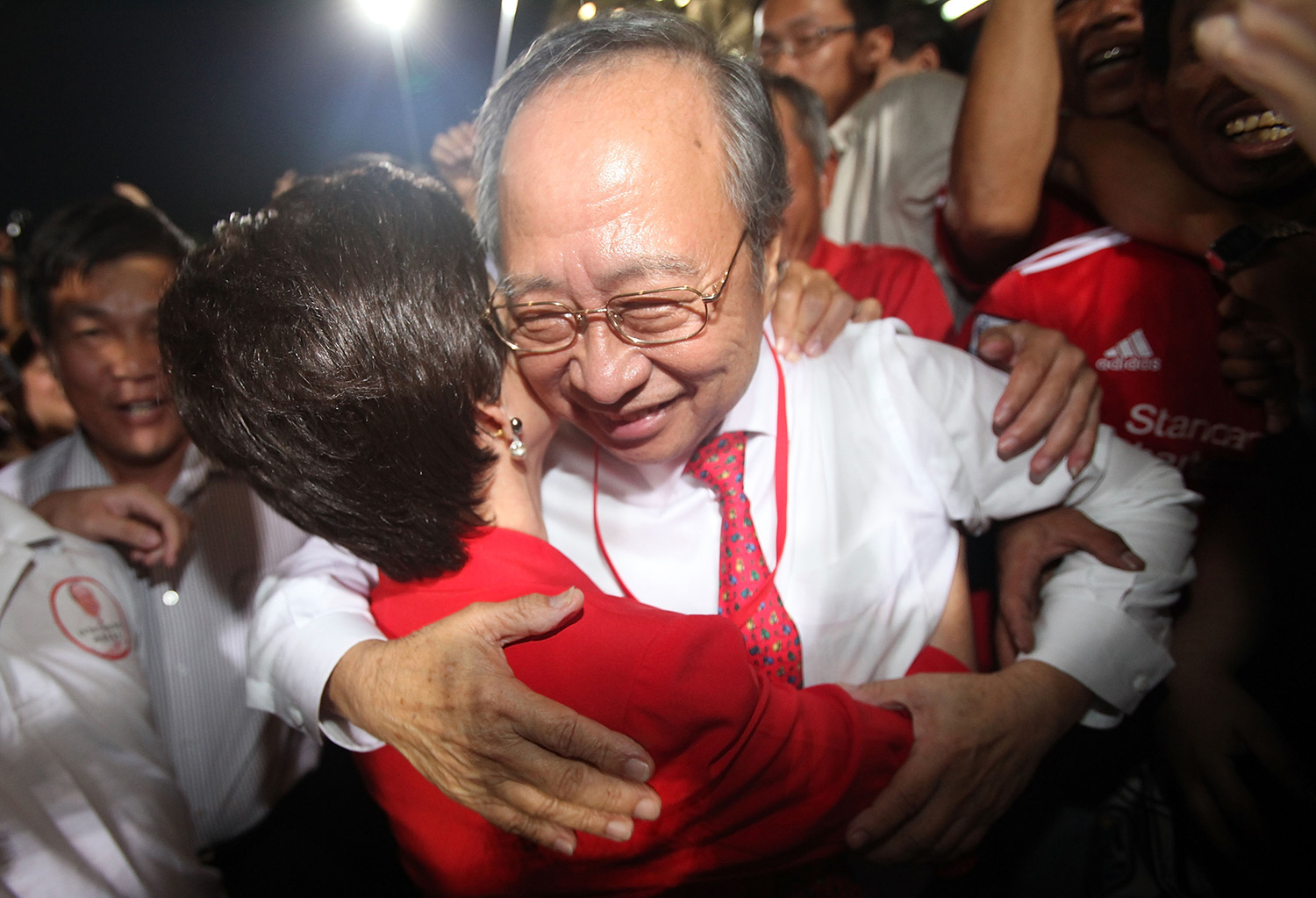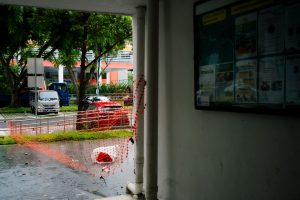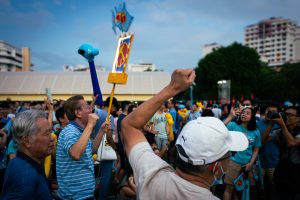As far as standard opposition members go, Dr Tan Cheng Bock doesn’t appear to be like the ‘rest of them’—disgruntled, incoherent, and dying to have their 15 minutes of fame.
For one, Dr Tan was well-liked during his extensive political career. The former PAP member served as the Member of Parliament (MP) for Ayer Rajah SMC for 26 years from 1980 to 2006. He won each election with an average of 77% of the votes, making him one of the best performing candidates in Singapore.
Aside from opposition stalwarts Chiam See Tong of the Singapore Democratic Party and Low Thia Khiang of the Workers’ Party, there are perhaps no other current opposition members who rival his popularity.
Fighting for the opposition shouldn’t come as a surprise for those familiar with Dr Tan’s political career. Even as a member of the ruling party, he harboured a rebellious streak. He once argued that the government should “tone down its calls for the recruitment of foreign talent and reassure Singaporeans that they came first”, apparently earning him a strong rebuke from Lee Kuan Yew.
Since the now-retired medical doctor decided to return to politics, Dr Tan has been heralded as a saviour. But to convince more people of his appeal, he needs to demonstrate clearly how far his party’s political agenda would deviate from the PAP, as well as establish a cogent understanding of deeper social issues and how he plans to tackle them through public policy.
At this point, he’s done neither.
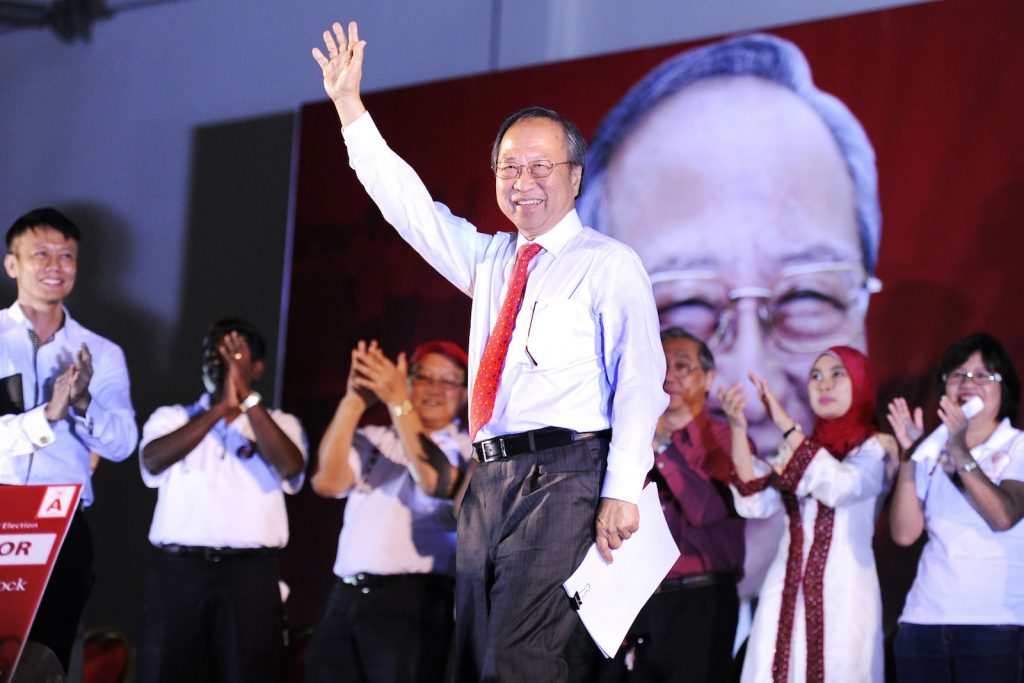
Dr Felix explains, “I think what Singaporeans yearn for is a political opposition that doesn’t put Singapore at a weaker position or at risk, but rather strengthen the democracy that the country has been striving for. While Singaporeans might not want a leader from the PAP, they might not want new faces with a lack of political experience and/or that have not been tried and tested in local politics before.”
According to Dr Felix’s observations, Dr Tan straddles a “unique position within Singapore politics”. Not only does Dr Tan have the experience of successfully running in local elections, he also possesses the political acumen that few opposition members have.
Based on what we know of Dr Tan’s character, Dr Felix further posits that the good doctor may be “seen as one who has the tenacity to withstand criticisms from the ruling party”, having “never minced his words or shirked away from a good fight”.
However, he adds that some people might still consider Dr Tan as part of the PAP regime that stifled political freedom and freedom of speech and opinion. It was, after all, only after failing the bid for the Presidency that Dr Tan took on a more heightened role in opposition politics.
Nonetheless, when news broke that Dr Tan was considering a return to politics, the public saw him as a man willing to use his privilege to the people’s advantage—the essence of a true public servant.
That said, the last time Dr Tan served was 13 years ago. The political climate changed since his time in office; critical issues like income inequality, climate change, fake news, and meritocracy that will likely dominate the mainstream narrative and shape Singapore’s near future weren’t as pertinent back then.
It remains to be seen whether Dr Tan’s party can stop relying on his past track record to win them supporters. What matters is whether they can deliver convincing policy measures to tackle the big issues of today, and if they possess a comprehensive understanding of what’s at stake for the future.
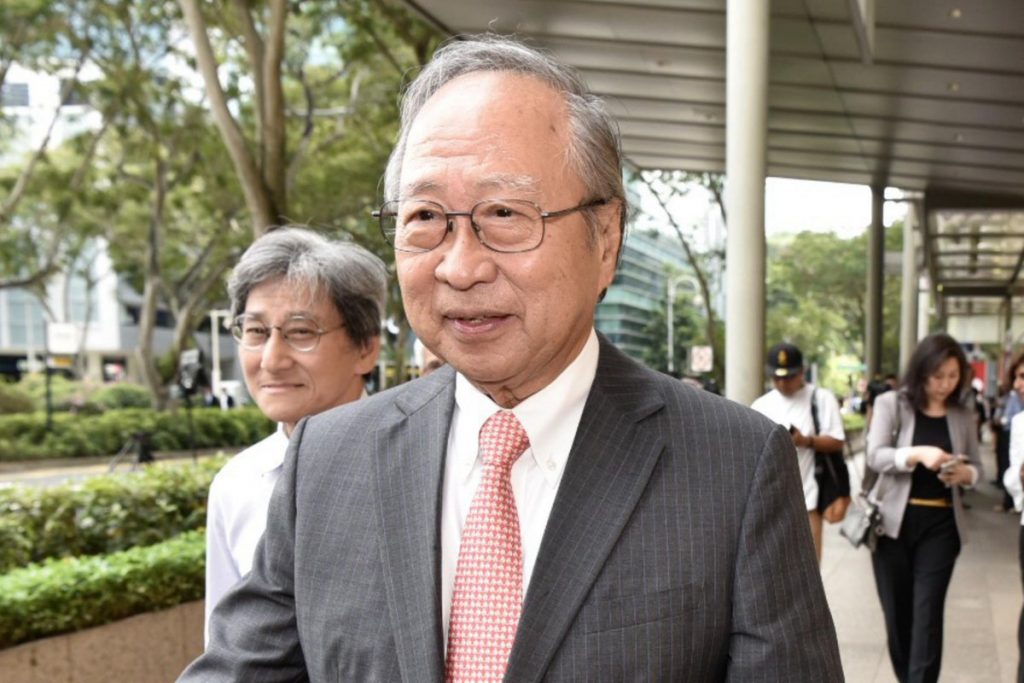
Justin himself went for the talk hoping to learn about Dr Tan’s take on our meritocratic system that seems perfect on paper, but less so in practice. The 24-year-old thought Mr Tan addressed some important points that were “very targeted at showing how meritocracy had some cracks”, especially when he spoke about how Singaporeans seem to be allocated to their vocations in National Service partly based on their race.
But Justin also points out that Dr Tan held an overly simplistic view that Singaporeans have learnt to see beyond race. An interviewee from Justin’s original article was also concerned about Dr Tan’s seeming blindspot regarding race.
Justin adds, “It doesn’t take many conversations with my Chinese friends to know that racism is still alive and well. In order to talk about meritocracy, we have to address these issues of race rather than assume we are all happy as ‘one Singapore’.”
Another Yale-NUS student at the talk, Chew Huijun, was also unimpressed by Dr Tan. The 22-year-old and his friends are concerned about what jobs would look like in the future, how Singapore could be a more inclusive and equitable society, and how we plan to deal with the income and wealth gap.
Unfortunately, Dr Tan “gave shallow answers that wouldn’t look out of place in a GP essay”. For instance, when asked about how Singapore could deal with tuition contributing to inequality, Dr Tan simply said his grandchildren in Australia didn’t need or have tuition, and that achieving a similar situation in our country would require a mindset change.
Huijun adds, “How do we change minds if the goalposts set by society doesn’t shift? How do we convince parents to give up tuition? These were all questions he didn’t or couldn’t answer.”
Huijun also didn’t get a satisfactory answer to his concerns about the changing nature of work in relation to automation, and the possibility of people getting left behind because of a lack of skills. Again, Dr Tan simply said there must be a “special scheme” to help these people, without specifying what that would look like.
“Dr Tan seemed to have poor technical knowledge of policy instruments, and wasn’t well-versed in the concerns and conversations of the day. If you come to a liberal arts college to talk about meritocracy, you should expect people to ask about social safety nets, inequality and how to reduce it; sustainable growth, and how to fix our flawed version of meritocracy, to name a few aspects,” says Huijun.
“I expected him to have some good answers, or at least good non-answers. But he had neither.”
More Singaporean youth like Justin and Huijun have begun to challenge the glossy narrative they’ve been sold about our country and the government. They see respect and admiration as something that public leaders have to earn, and they’re no longer satisfied with what older generations wanted in the past, such as BTOs and stable office jobs.
For a country to make significant progress, future leaders and politicians can no longer neglect youth voices like theirs.
As Huijun puts, “They need to decide if the youth vote is important for them to win. On our part, we probably also need to make ourselves relevant and less apathetic, in order to let politicians know that we will be willing to vote on these issues.”
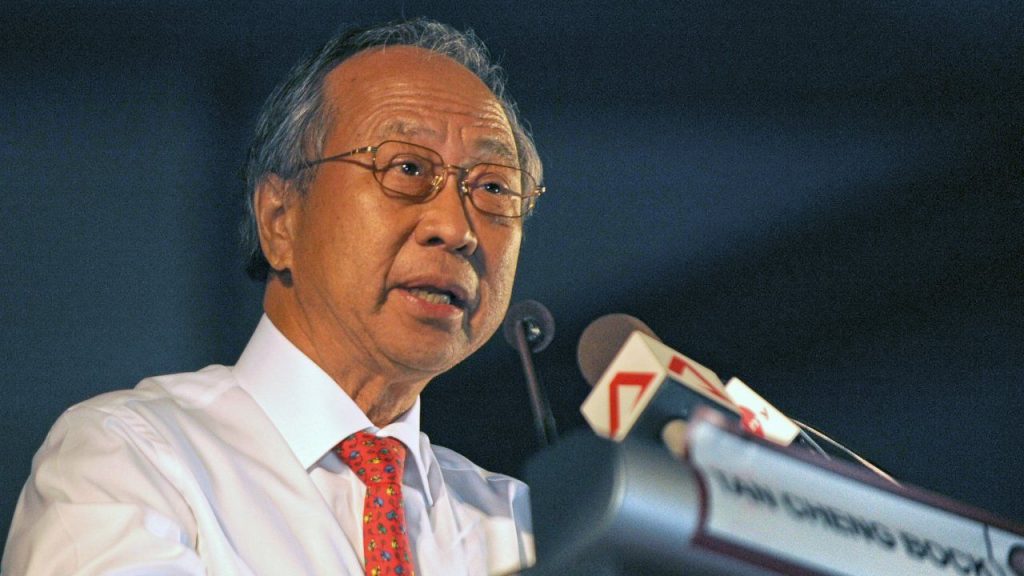
She added that we are not Lee Kuan Yews, Goh Keng Swees, or Rajaratnams—and we need not pretend to be.
But for many people, Dr Tan remains the ‘best’ hope to break free from a largely one-party government, precisely because he hails from the era of Lee Kuan Yews, Goh Keng Swees, and Rajaratnams.
While his past experience in the ruling party may be seen as advantageous, Singaporeans also have a tendency to filter the present and future through the lens of nostalgia. We seem to think political veterans will restore the simpler political climate of the past, painfully unaware that their methods of engaging the community years ago might not cut it anymore. Basically, the PAP of Lee Kuan Yew’s era might fail miserably in today’s context.
Justin, for one, doesn’t believe that having experience in the PAP is necessarily a good thing for Dr Tan’s chances. This only conflates the varying needs and wants of all Singaporeans into something only a certain generation of Singaporeans would like to see.
Furthermore, hanging out with the brother of our Prime Minister seems to serve no purpose besides to ‘intimidate’ the ruling party. At best, it’s entertaining fodder for social media; at worst, it’s a red herring that only distracts from Dr Tan’s party’s lack of impending policy change.
Instead, we should demand more from our leaders, especially those who claim to share our values and represent our interests, instead of fawning over them when they meet the bare minimum checklist to be a ‘perfect’ politician in this country.
If we truly believe Dr Tan needs to win, we must hold him to higher standards. This means demanding that he shows a fundamental understanding of the current issues that plague Singaporeans more than a decade after his departure from politics, articulates feasible policy measures to address them, and details how his party plans to get the votes of those who are growing to be more politically and socially conscious. Then, even if we disagree with his party’s policies, at least we finally see the values and ideals they stand for.
Moreover, the lacklustre lineup of members in his party leaves little to be desired. We live in a society that perpetually enables the same, tired demographic to get involved in politics (i.e. old men).
If anything, the dire lack of capable and willing millennial and/or female members should raise serious questions about whether politicians are truly cognisant of the nuances that come with being a representative of the people in this day. One cannot claim to represent Singaporeans when their party comprises only a specific privileged demographic.
Otherwise, there are no two ways about it: Dr Tan’s party is simply version 2.0 of the PAP.
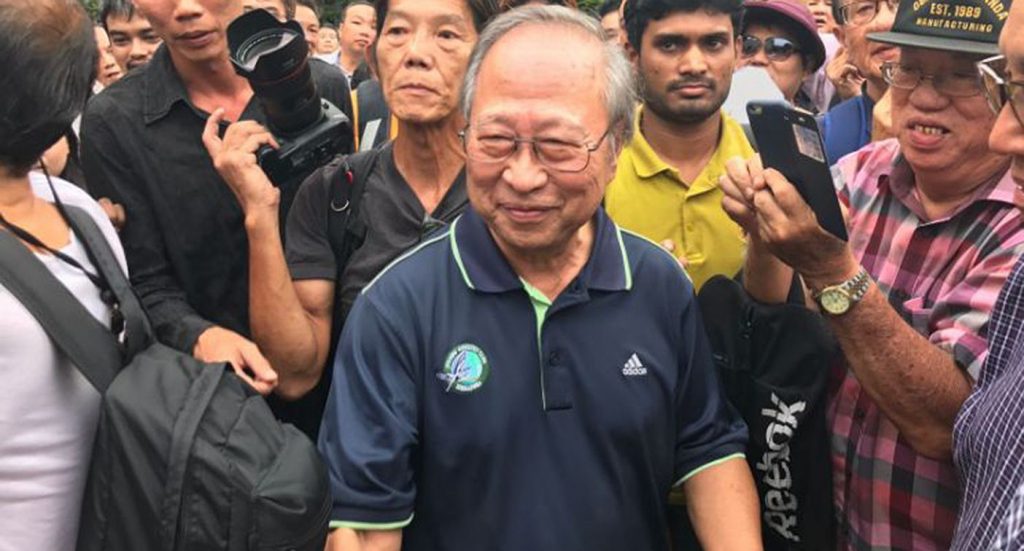
The last thing we want to do is vote for a candidate just because they’re charismatic or a symbol of hope, and therefore fragment the votes for other viable opposition parties.
Perhaps Singaporeans ourselves are largely to blame for the reason that we’ve been stuck with mediocre opposition members who don’t inspire greatness thus far. We simply don’t know what we want in our leaders, our policies and politics, or our country, because we still don’t know who we are or who we want to be as Singaporeans.
When we’re not even clear about our identity, it’s easy to place all our hopes on any decent candidate that comes along. Yet they can’t truly represent us if we don’t even know what we’re hoping for.
As a result, many Singaporeans are more than willing to revere political veterans whose reputation precedes them. In this case, they have placed Dr Tan on a pedestal.
In politics at least, too much hype can have the opposite intended effect. Hype is usually built around certain anecdotes that we hyperbolise, such as assuming someone is a ‘man of the people’ simply because they eat in a hawker centre or live in an HDB. This creates an unrealistic and unbelievable impression of the politician in question, alienating would-be supporters.
Hype inadvertently flattens the complexities of being human. Through the lens of hype, a politician is one-dimensional, leaving them little room to reveal other possibly more problematic facets of their personality.
In fact, we have to constantly hold politicians at a healthy reserve. Because they craft policies that affect our lives, they will always wield a certain power that prevents them from ever being one of us.
That is to say, no matter the underprivileged background he used to come from, or how #relatable and empathetic Dr Tan is, we should judge his political acumen solely on how relevant it continues to be today. Policy impact should be the singular thing we allow our votes to be influenced by.
As it is, his party lineup reflects a poor reading of ground sentiment, and that he might not really know how to bring about radical and informed change.
For Justin, Huijun, and even myself, we expect more from Dr Tan, especially after everything that generations before us claim he can do. But perhaps it’s our fault for allowing cultural sentiment, from impassioned support to blind adulation, to shape our expectations of politicians as well.
If we are disappointed by the reality, we are merely victims of our own hype.
In any case, the answer should be obvious by now: no, Dr Tan won’t save us—least of all from ourselves.

